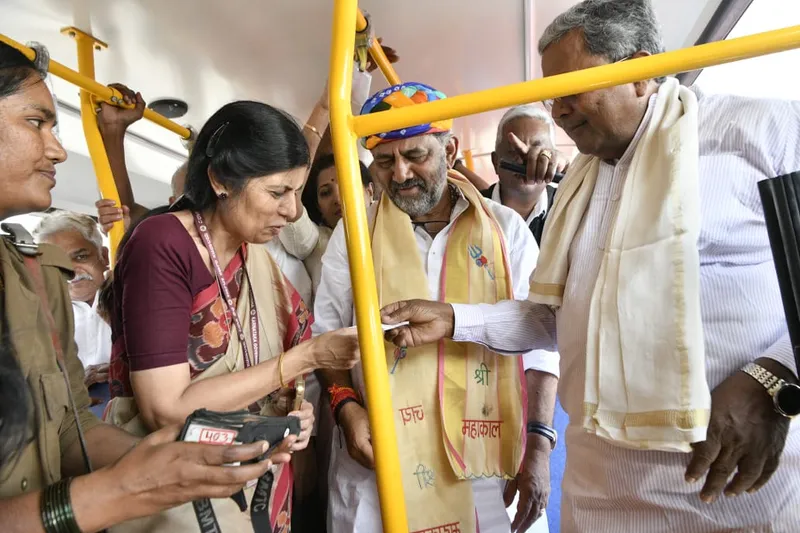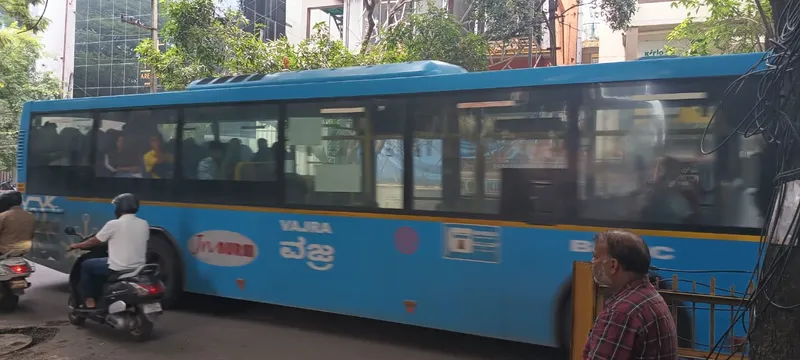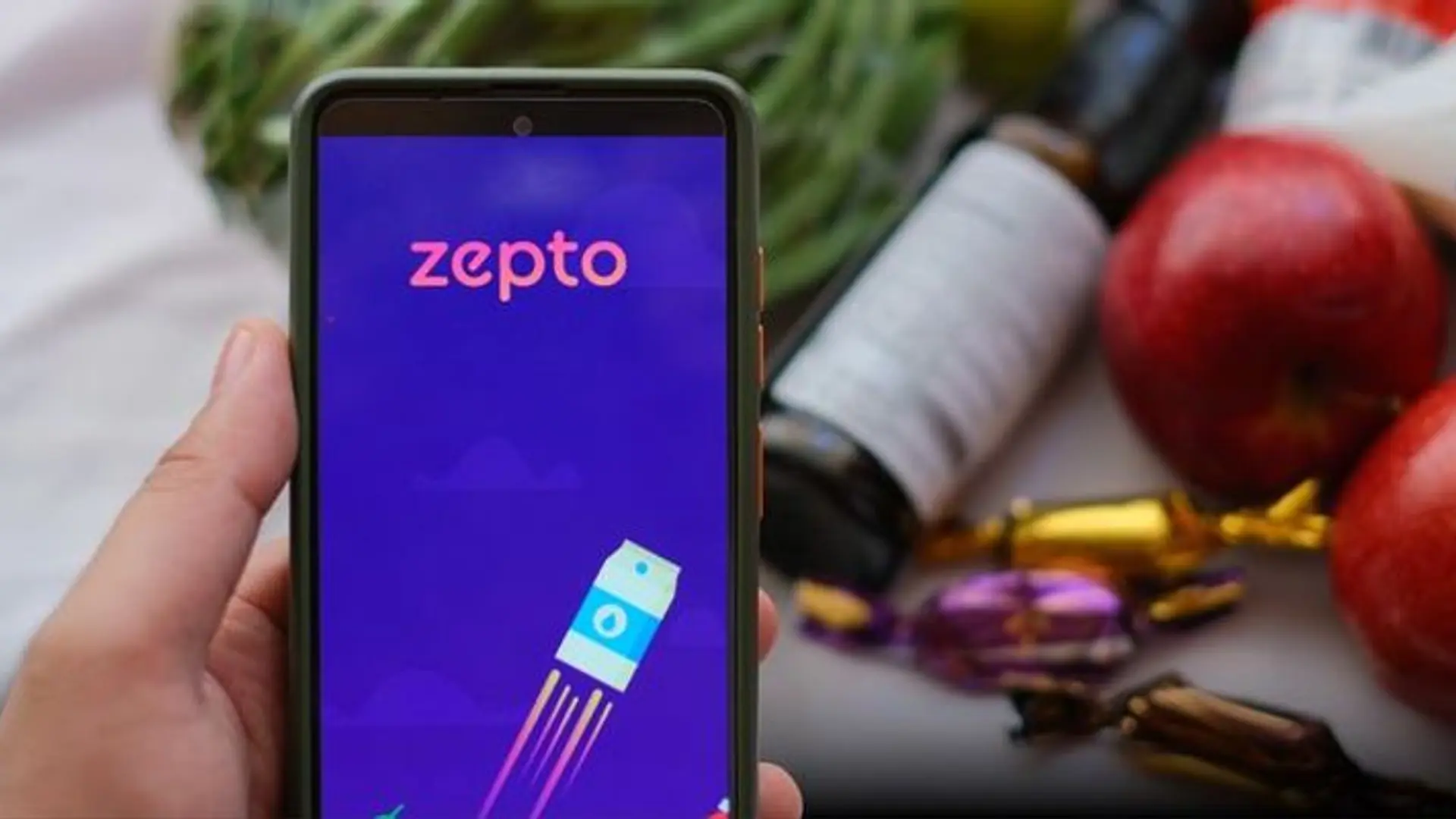Karnataka Shakti Scheme: Free bus initiative transforms women's mobility, sparks mixed reactions
Shakti Scheme, a flagship scheme of the Government of Karnataka, aims to empower women and the transgender community by providing free bus service.
On June 22, I was waiting for a bus in Bengaluru, hoping to get a first-hand look at the reality of the Karnataka Shakti Scheme—an initiative under which women can avail free bus travel.
One of the five “poll guarantees”, the scheme is one of the first promises to be fulfilled by the Siddaramiah government.
“We have delivered as promised. Our government has launched #Shakti—a free bus travel for women scheme. This will empower women to participate in the nation-building process,” CM Siddaramaiah tweeted on June 11, the day the government rolled out the initiative.
As the bus finally arrived, a swarm of people poured out. With unwavering determination, I navigated through the surge of passengers and secured my place. Despite the crowd, I even found a seat.
And, while I had to pay for my ticket—given my non-domiciled status—I couldn’t miss the radiant smiles of my fellow women passengers who held their “zero tickets” with joy.
The government insists the scheme will help in reducing the travel expenses of women and enable them to save more, however, critics are concerned about the burden on taxpayers.
HerStory spoke to women coming from different walks of life to find out what they think of the scheme.
Saroja Kannapa, General Secretary of the Garment Labour Union, believes that the initiative has been beneficial for garment workers.
“Earlier a certain amount was deducted from our salaries and was given to us as travel allowance. However, from the next month, that sum would not be deducted anymore. This way we will be getting the full salary,” she tells HerStory.
Although Kannapa is optimistic about the initiative, she notes that the buses have become overcrowded and their frequency has dipped.
Bhagya, who hails from Melur, a town in Tamil Nadu, and is in Bengaluru for work, feels the same. “I feel that the frequency of buses has reduced and there is not much clarity on bus routes.”
Narrating a similar situation, Isha, who works at the LIC office, says, “I travel from KR Puram to MG Road by bus daily. But only a few buses are arriving and many times they do not stop at the depot. In such situations, I take AC buses for which I have to pay the ticket fare,” she says.
Paravathi from Mangalore faced a similar problem. She tried to catch a bus, but since it was full, she ended up taking a private bus. But she is happy with the scheme as she had to spend around Rs 580 to go to her hometown, an amount that she can save now. She says, more women in her village are planning to use the service to travel.
According to Shravani Prakash, Founder of Ellenomics, a think-tank working to economically empower women, it is a little too early to comment on the scheme.
“Whenever a new scheme gets introduced in the state, there will be some loopholes in it, but they can be fixed in the later stages. But what needs to be looked at this time is that the scheme has the potential to help women from economically weaker sections of society. They would be able to save the money they were spending on travelling,” she says.
“This initiative also provides a sense of freedom to women as they can travel anywhere without being financially dependent on anyone,” Prakash, who is also a Gender, Trade and Policy Research Specialist, adds.
What does the scheme offer?

CM Siddaramiah launches Shakti Scheme (Source: BMTC twitter)
Under the Karnataka Shakti Scheme, women, and those from the transgender community, can avail of free bus travel anywhere in the state, without any limits on the kilometres.
The four road transport corporations under the scheme are Karnataka State Road Transport Corporation (KSRTC), Bengaluru Metropolitan Transport Corporation (BMTC), North West Karnataka Road Transport Corporation (NWKRTC) and Kalyana Karnataka Road Transport Corporation (KKRTC).
Women can avail of the service in over 18,000 ordinary and express buses in the state. AC, AC sleeper, non-AC sleeper, and luxury buses aren’t covered under the scheme.
For now, women can travel for free by showing a valid photo identity card issued by the union or state government such as Aadhaar or voter ID. The Karnataka government will issue Shakti Smart Card in three months and eligible women can apply for the cards via the Seva Sindhu portal.
The cost of the travel will be reimbursed to the corporations by the government based on the data collected from the zero tickets and smart cards.
Kannapa has not yet applied for the smart card and has been using her Aadhaar card to get the zero ticket. “It is just the beginning. The government should ensure the scheme is implemented correctly,” she says.
The cost of free travel
The free travel service will benefit more than 41.8 lakh women passengers every day, costing the state exchequer an estimated Rs 4,051 crore annually, PTI reported earlier this month, citing a government official
In nine days, starting from June 11, more than 4.2 crore women have used free bus services in Karnataka. Out of this, 1.2 crore travelled in KSRTC, 1.4 crore in BMTC, 1 crore in NWKRTC, and 54 lakh in KKRTC buses.
The scheme has so far cost more than Rs 100 crore to the state government, and the average daily footfall of female passengers in buses across the four divisions was 38.60 lakh over the course of nine days, the Indian Express reported.
"It is a boon for underprivileged women but I don't know if it will help the state as a whole," Paravathi says.
Paravathi feels the excitement will soon dissipate.
Empowering housewives, students

An AC bus in Bengaluru
Rupa, a housewife residing in Bengaluru, uses a two-wheeler to travel within the city. However, last Sunday, she decided to take the bus.
“I travelled from Wilson Garden to Majestic for free. I feel this scheme is very useful for women coming from underprivileged backgrounds or women who are financially dependent on their families,” she says.
Rupa says she will use the bus more often now. But, for short distances, she will continue using her two-wheeler.
Kavya Darshini, a 17-year-old, who travels daily from Tin Factory to Indiranagar for her college, now saves around Rs 20 each day, which she would otherwise spend on her daily commute.
A ten-month BMTC bus pass for students costs anywhere between Rs 200 and Rs 1,880.
“I feel this is a good scheme for us students who always have a money crunch. We often need to manage the money we get from our homes. So whatever small amount I save from free rides can be used for something else,” she notes.
Lischitha, who studies at Baldwin Women's College in Bengaluru, has a similar opinion.
“This scheme is really good for students. It is helping us to do some savings. I used to pay around Rs 200 a month but now I can travel for free,” she says.
However, Darshini also believes that every scheme has both pros and cons. “I feel it is a good scheme for women for sure, but I also think that something should be done for men too,” she adds.
Currently, the Karnataka Shakti Scheme offers 50% seat reservation to men in state-run corporations, except for BMTC.
Mixed reactions
Since its launch, the Karnataka Shakti Scheme has been under the limelight for several reasons, including its effect on the state’s tax burden and the possibility of the initiative being misused.
Although Ellenomics’s Prakash agrees that “freebies are not good from an economic standpoint”, she believes that the scheme has great potential to help women from underprivileged backgrounds.
Several men have also taken to Twitter to call out the scheme. They feel that the scheme is providing an unfair advantage, especially to women who are earning well.
Prakash thinks the narrative of the scheme being “unfair” can lead to women travellers facing misconduct.
After reports of misconduct on the buses, KSRTC on Friday instructed bus operators to be courteous towards women passengers.
According to Prakash, most women who earn well would prioritise their comfort and hence might go for a cab, auto, or metro.
Shambhavi Sinha, who works in Indiranagar, agrees. Sinha, who shifted to Bengaluru a month ago, travels daily from KR Puram Metro Station to the Bayapanahalli metro station by bus.
“I am not a resident of Karnataka and hence I cannot avail of the scheme. But I am not bothered much about it as I have to pay a minimal amount to travel by bus and that isn’t a problem for me. When I can afford it, why not just pay for my ticket. More than us, I feel this scheme might really be helpful for women who are coming from financially restrained backgrounds,” she said.
Prakash believes that the government needs to follow up and fix bugs in the system. She suggests that the safety of women should also be taken care of by sensitising bus drivers and conductors, installing panic buttons, and displaying posters with helpline numbers for grievance redressal.
“The government needs to follow up with actions to patch up the loopholes so that the scheme achieves its full potential,” she says.
*The names of some respondents have been changed to protect anonymity.
(The story was updated to change some typos)
Edited by Affirunisa Kankudti







